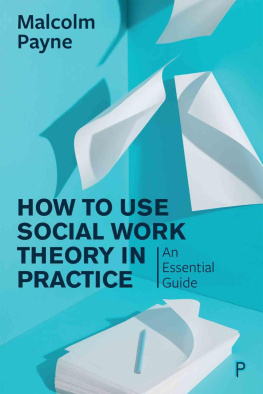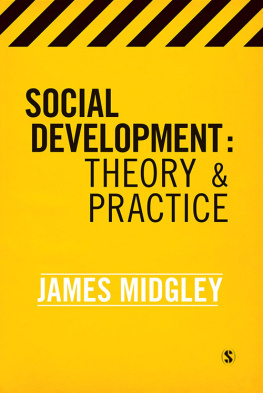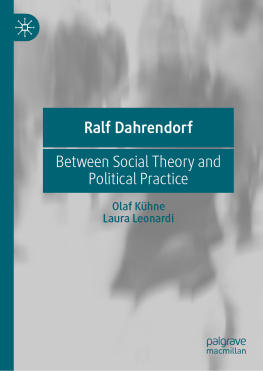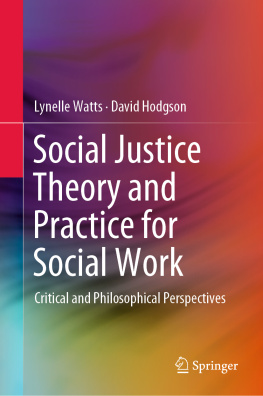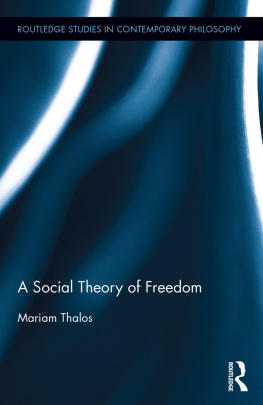ROUTLEDGE LIBRARY EDITIONS: SOCIAL THEORY
Volume 67
SOCIAL THEORY AND POLITICAL PRACTICE
SOCIAL THEORY AND POLITICAL PRACTICE
BRIAN FAY
First published in 1975
This edition first published in 2015
by Routledge
2 Park Square, Milton Park, Abingdon, Oxon, OX14 4RN
and by Routledge
711 Third Avenue, New York, NY 10017
Routledge is an imprint of the Taylor & Francis Group, an informa business
1975 George Allen & Unwin (Publishers) Ltd
All rights reserved. No part of this book may be reprinted or reproduced or utilised in any form or by any electronic, mechanical, or other means, now known or hereafter invented, including photocopying and recording, or in any information storage or retrieval system, without permission in writing from the publishers.
Trademark notice: Product or corporate names may be trademarks or registered trademarks, and are used only for identification and explanation without intent to infringe.
British Library Cataloguing in Publication Data
A catalogue record for this book is available from the British Library
ISBN: 978-0-415-72731-0 (Set)
eISBN: 978-1-315-76997-4 (Set)
ISBN: 978-1-138-78252-5 (Volume 67)
eISBN: 978-1-315-76377-4 (Volume 67)
Publishers Note
The publisher has gone to great lengths to ensure the quality of this reprint but points out that some imperfections in the original copies may be apparent.
Disclaimer
The publisher has made every effort to trace copyright holders and would welcome correspondence from those they have been unable to trace.
Social Theory and Political Practice
by
BRIAN FAY
George Allen & Unwin (Publishers) Ltd, 1975
This book is copyright under the Berne Convention. No reproduction without permission. All rights reserved.
George Allen & Unwin (Publishers) Ltd,
40 Museum Street, London WC1A 1LU, UK
George Allen & Unwin (Publishers) Ltd,
Park Lane, Hemel Hempstead, Herts HP2 4TE, UK
Allen & Unwin, Inc.,
9 Winchester Terrace, Winchester, Mass. 01890, USA
George Allen & Unwin Australia Pty Ltd,
8 Napier Street, North Sydney, NSW 2060, Australia
First published in 1975
Fifth impression 1983
ISBN 0043000479 Hardback
ISBN 0043000487 Paperback
Printed in Great Britain by Biddles Ltd, Guildford, Surrey
Acknowledgements
This book owes a great deal to a number of people, but to these in particular: John Plamenatz, my former teacher who has discussed, and sometimes disagreed with me on, these matters for the past six years, and who read the manuscript with his usual care and insight; Michael Brody, my student who has contributed enormously to the development of my ideas these past two years, not least by refusing to be bulldozed; Louis Mink, my philosophical patriarch who taught me the philosophy of social science while I was ostensibly teaching a class in it with him; Tom Bottomore and Michael Mulkay, the editors of this series who made a number of helpful suggestions; Don Moon, my dear friend and fellow philosopher whose ideas and criticism run through every page of this book; and lastly, to my wife Ingrid, who so warmly supported me when I was first hesitatingly trying to work out these ideas.
I would like to dedicate this book to her.
Contents
This is a short book which tries to accomplish two things at once: on the one hand it is intended as an overview of the principal current ideas about the relationship between social theory and political practice; and, on the other, it is an attempt to develop a critical stance towards these ideas, with the hope of providing a new and more satisfactory account of this relationship. These two aims are not unrelated to one another. As will become apparent in the text, one of the major themes that emerges from the description I give of the main positions which have been taken on this matter is the intimate connection that exists between the ideas that we have and the sort of life that we lead, and it is in the light of this that I could not maintain a neutral attitude towards the ideas I had to discuss. What is at stake in these matters is not merely certain academic questions about how to conduct social inquiry, but also socially relevant ideas which have a direct bearing on the question of how our social life is to be conducted.
The general question with which this book is concerned is how our knowledge about social life affects, or ought to affect, our living of it.1 Normally these notions are not considered together: on the one side there is social theory which seeks to explain social behaviour, on the other there is political philosophy which proposes ways in which our social theories may be used to change social behaviour, but no necessary connection is thought to exist between them. One is quite accustomed to seeing sharp divisions being drawn between knowledge and the uses of knowledge, between questions in the philosophy of social science and those in political philosophy, between scientific activity and political activity, and between theory and practice.
These are, of course, not all distinctions of the same type, but they are all rooted in the conventional approach which separates theoretical matters from practical matters, which drives a wedge between questions about what is the case from questions about what ought to be done. One of the central claims of this book is that as long as this conventional approach is employed both our understanding of the nature of social theory and our understanding of the way in which such theory is related to practical action will be seriously impaired; moreover in the light of my remarks in the first paragraph it is also one of the chief arguments of the book that these misunderstandings themselves will have important political consequences.
Even on an introductory and intuitive level, however, the neat divisions which are usually drawn or assumed in analysis might sound somewhat implausible: for men are not generally schizoid in their thought, such that they view social life in one way when they wish to study it, and in a quite different way when they come to questions as to how the knowledge they have gained is relevant to the practical problems which confront them. But, of course, the issue is not simply whether certain ideas are interrelated, but whether they are necessarily so, and, if so, in precisely what ways. And it is just this notion of necessity which modern conventional wisdom denies; for it distinguishes between the two different roles a man may play-a scientist who is a seeker of truth, and a political actor engaged in practical activity with the idea being that in principle these roles are distinct even though in practice they may be interrelated in some way. It is just this bit of common sense that I hope to undermine and to replace with an account of social science which starts from a radically different premise, namely, one which is rooted in an explicit theory of how this social science is related to political practice.
. But prior to this I also give an account of two other, more familiar, models of social science, the positivist model and the interpretive model. Actually, given what I have just asserted that implicit in ideas about the nature of social theory is a latent conception of how this theory is related to practice it will be necessary for me to give somewhat different descriptions of these more familiar models than are usually given. The reason for this is that the conventional descriptions, which fail to make explicit this latent conception, are seriously inadequate, and this inadequacy I hope to have overcome.





